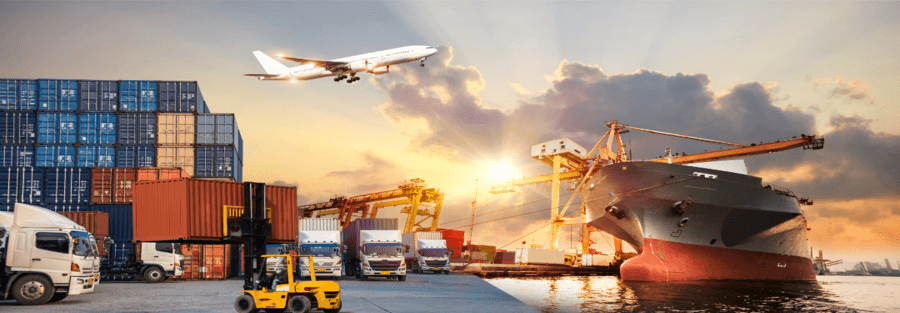In the vast ocean of global trade, the risks are intimidating. In this situation, the need for comprehensive insurance coverage is paramount. Marine insurance is a protective shield for shipowners, cargo owners, and various stakeholders in the maritime industry. It covers for various risks and protects individuals and businesses involved in maritime activities. However, understanding the different policies available can feel like navigating uncharted waters.
Marine insurance is an essential aspect of the maritime industry, providing coverage for various risks and protecting individuals and businesses involved in maritime activities. However, navigating through the different types of marine insurance policies can be challenging.
This blog, will explore the various types of marine insurance policies available, including hull insurance, cargo insurance, protection and indemnity insurance, and liability insurance. By understanding the coverage and suitability of each policy, you can make an informed decision and select the right marine insurance policy for your individual or business needs.
Marine Insurance and its Types
1) Open Policy:
It is difficult to insure individual transactions for large commercial firms and establishments with huge trade volumes. Open policies provide automatic and continuous protection to all consignments of such insured. Open policies are typically issued for a year. If they are fully declared before that time, a fresh policy may be issued or an endorsement placed on the original policy for the additional amount. On the other hand, if the policy has run its normal period and is cancelled, a proportionate premium on the unutilised balance is refunded to the insured if the full premium has been collected earlier. The Open policy will not operate upon the expiry of the policy period or on exhaustion of the sum insured, whichever is earlier. Hence, the insured should take care that the sum insured is enhanced by an additional premium in case it can be exhausted before the policy expires.
Features of Open Policy-Inland
Commonly used for dispatches within the country by rail, road, air, inland waterways and registered post parcels
• The policy term is one year.
• Policy issued for a substantial sum insured based on the projected value of dispatches.
• Periodic (monthly or quarterly) declarations are made.
• The policy ceases on the expiry of the term or when the sum insured gets exhausted, whichever occurs first.
Features of Open Cover - Import and Export
A marine cargo open cover is an agreement between a merchant and an insurance company to insure all goods in transit within the agreement for a definite period.
• An Agreement with the insured is made for a specific period, generally 12 months.
• Rates, Terms & Conditions are agreed to in advance by both parties.
• Funds are remitted in advance for the projected exports and imports to be covered.
• Details of all shipments without any exceptions to be exported or imported should be declared by the insured.
• Certificate would be issued against each declaration by the insurer or the insured through the online portal on a periodic basis as agreed with the insurance company.
• Agreement ceases on the expiry of the period or when the sum insured gets exhausted, whichever occurs first.
2) Specific Policy:
Specific policy is valid for a single transit only. The policy is usually issued before the voyage begins. The coverage will be as soon as the voyage ends. The specific voyage policy must show complete details of the risks covered. It should contain particulars of conveyance, vessel name, bill of lading, airway bill, consignment details, sum insured terms and conditions of cover, voyage, cargo description and many more.
Features
• Covers only particular consignment
• Insurance on case-to-case basis
• To be arranged before the commencement of transit, or can be issued on backdated basis with underwriting approval
• Particulars of dispatch to be furnished at the time of buying the specific policy
Furthermore, there is
1. Hull Insurance
Just as a sturdy hull safeguards a ship against the raging seas, hull insurance shields shipowners from the financial burden of damages to the vessel. The policy cover the physical loss or damage to a vessel or ship's hull. It protects the owner against perils such as collisions, grounding, fire, theft, and natural disasters. Hull insurance typically covers the cost of repairs or replacement of the vessel, as well as salvage and towing expenses. This type of insurance is essential for shipowners and operators to safeguard their valuable maritime assets.
2. Cargo Insurance
Imagine your cargo sailing across the globe, facing numerous risks en route. Cargo insurance steps in to protect the goods from potential losses or damages during transit. This insurance covers for goods being transported by sea, air, or land. It protects against various risks, including theft, damage, loss, and non-delivery of goods during transit. Cargo insurance can be tailored to meet specific needs, such as coverage for perishable goods, high-value items, or goods transported to high-risk areas. Whether you are a shipper or a cargo owner, cargo insurance is crucial for mitigating financial losses arising from unforeseen transportation events.
3. Protection and Indemnity (P&I) Insurance
In the maritime world, unforeseen liabilities can arise, ranging from bodily injury to pollution incidents. P&I insurance provides comprehensive liability coverage for shipowners and operators. It is a comprehensive liability insurance policy for shipowners and operators that provides coverage for third-party liabilities arising from ship operations, such as collisions, pollution, injury or death of crew or passengers, and property damage. P&I insurance also offers additional benefits, including legal defence costs and assistance with pollution cleanup. Shipowners and operators often join P&I clubs, which provide mutual coverage and support.
4. Liability Insurance
Liability insurance covers a wide range of liabilities that may arise from maritime operations. It includes coverage for liabilities related to pollution, wreck removal, collision damage, and general third-party liabilities. Liability insurance is crucial for shipowners, operators, and other maritime stakeholders to protect against potentially significant financial losses resulting from legal claims and liabilities.
5. Freight Insurance:
Freight insurance guards against financial losses incurred by freight forwarders and carriers due to non-payment or insolvency of the cargo owner. This insurance explores the importance of freight insurance, the conditions under which it applies, and how it safeguards the revenue streams of shipping companies.
6. War Risk Insurance:
In times of geopolitical tensions or conflicts, ships face increased risks. War risk insurance provides coverage for vessels navigating through war zones or regions exposed to political perils. This insurance includes the geographic limits, coverage extensions, and the unique challenges faced by shipowners operating in high-risk areas.
Choosing the Right Marine Insurance Policy
Selecting the right marine insurance policy depends on various factors, including the nature of your maritime activities, the type of assets or cargo involved, and the level of risk exposure. Here are some considerations when choosing a marine insurance policy:
1. Risk Assessment: Assess the specific risks of your operations or cargo transportation. Consider geographic location, weather conditions, cargo type, and transportation methods.
2. Coverage Needs: Determine the coverage requirements based on the value of assets or cargo being insured. Assess the potential financial impact of various risks to determine the appropriate coverage limits.
3. Policy Exclusions: Understand the exclusions and limitations of each policy. Review the policy wording and consult with an insurance professional to ensure your specific needs are adequately covered.
4. Insurance Provider: Choose a reputable insurance provider with expertise in marine insurance. Consider their financial strength, claims handling reputation, and industry experience.
Conclusion
Marine insurance is critical in mitigating the financial risks associated with maritime activities. By understanding the various types of marine insurance policies available, including hull insurance, cargo insurance, protection and indemnity insurance, and liability insurance, you can select the right policy for your individual or business needs. Assess your risk exposure, evaluate coverage requirements, and consult with insurance professionals to ensure that you have adequate protection in place. Remember, choosing the right marine insurance policy is important in safeguarding your maritime assets and mitigating potential financial losses.
So, looking for stress-free marine insurance? Then, DgNote is the right place for you!
For more information contact us at sales@dgnote.com or +91-90040 54921.



